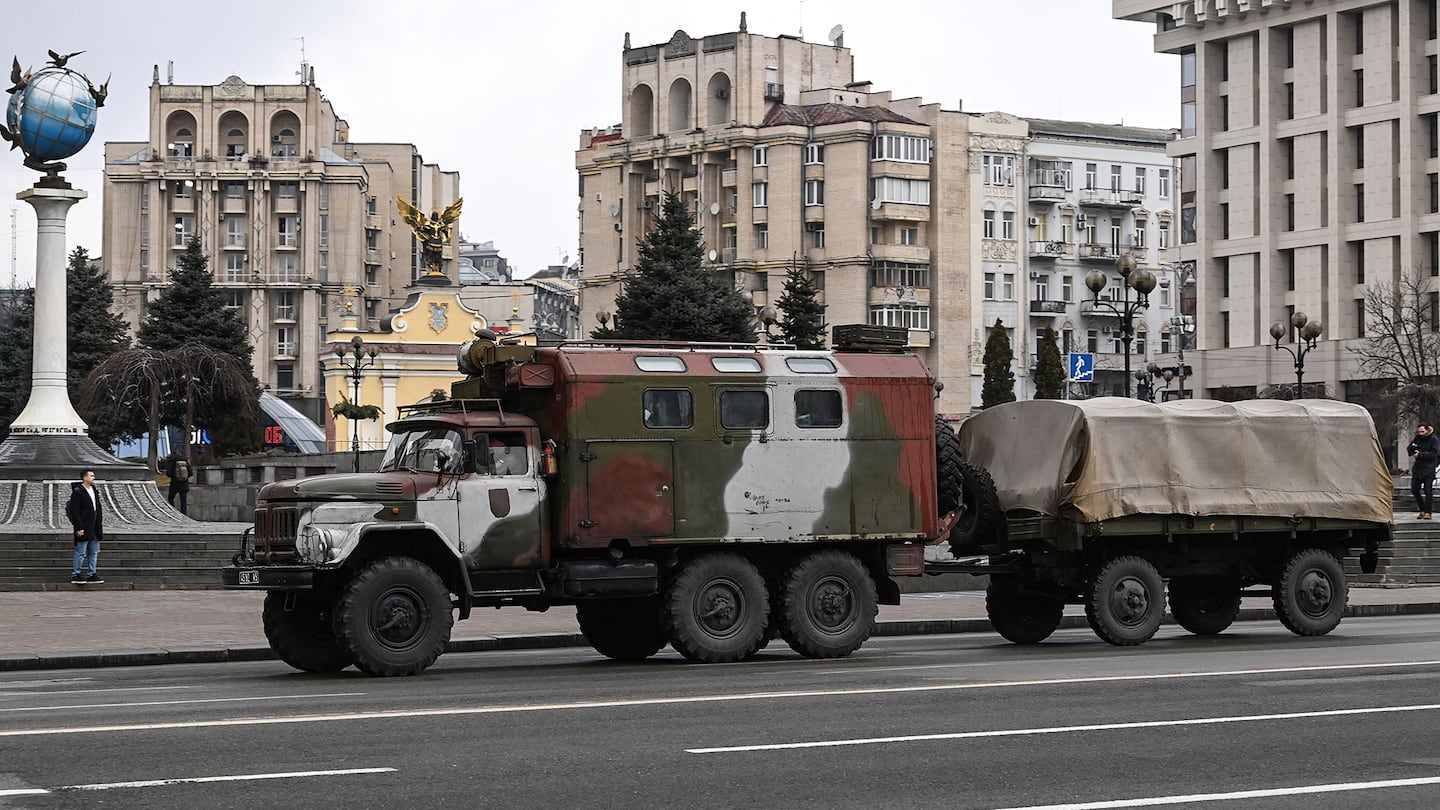
The Business of Fashion
Agenda-setting intelligence, analysis and advice for the global fashion community.

Agenda-setting intelligence, analysis and advice for the global fashion community.

European stocks and US equity futures fell Thursday morning as investors raced to transfer assets to lower-risk investments like government debt and gold following Russian military strikes across Ukraine.
The invasion of Ukraine by Russia, which Russian President Vladimir Putin calls a “special military operation” and NATO describes as a “brutal act of war” follows weeks of escalating tensions. The Russo-Ukrainian conflict began in 2014 when Russia annexed and invaded Ukraine’s Crimea region and is fuelled in part by a disagreement between Russia and a US-led alliance of countries over the possible future expansion of NATO into Ukraine.
Shares in luxury companies including French conglomerates LVMH and Kering, Swiss group Richemont, Milan-based Prada and British brand Burberry all fell between three and six percent, broadly in line with the four percent drop in the STOXX 600 index of Europe’s biggest companies.
This is a sign that investors are currently not expecting Russia’s attack on Ukraine to impact sellers of high-end fashion, beauty, and jewellery much more or less than the broader market. However, luxury analysts have indicated that the conflict could have a broader impact on business, as the associated shock to the global economy risks cutting short the sector’s recovery from the Covid-19 pandemic.
ADVERTISEMENT
Though details of the invasion remain sketchy, initial reports suggest there have been casualties including Ukrainian civilians and soldiers and Russian troops. Earlier this month, Ukrainian business leaders in the local fashion industry said they were preparing for the possibility of a military incursion even though some doubted the worst-case scenario would come to pass.
International fashion and luxury companies with a presence in Ukraine are likely to be working to protect the immediate safety of their employees, and securing or suspending operations in the country (Prada has already closed its store) as it endures an unprecedented humanitarian crisis. Firms are also closely monitoring the rollout of western sanctions against Russia, to anticipate the longer-term impact of the conflict on business.
Russia and Ukraine together are estimated to account for around four to five percent of global luxury sales, meaning the conflict’s direct impact on business is likely to be limited, Sanford C. Bernstein luxury goods analyst Luca Solca wrote in a note to clients on “the impact of war in the Ukraine.” But the ripple effect of the conflict across the world economy could be significant.
Solca said that because “the invasion of the Ukraine by Russia may be met by a stiff economic reaction by the USA and the EU ... the sanctions on Russia may trigger a further spike in energy costs and inflation ... [which] in turn may result in slower global GDP growth or even a global recession.”
This, in turn, could puncture the “high-end consumer feel-good” sentiment which “would lead to a sudden stop — or a steep step-down adjustment — in high-end discretionary spend. At the end of all this one would find significantly lower revenue and profit performance by the sector,” Solca concluded.
Zuzanna Pusz, head of European luxury goods at UBS, also believes the conflict represents a risk to the sector. “Rising stock market volatility and geopolitical uncertainty could pose a short term risk to broader consumer sentiment especially on high-end luxury goods, although it is difficult to judge at this stage,” she said.
Markets are particularly concerned with how the Eurozone economy will be impacted. Lower international tourism numbers since the onset of the pandemic caused luxury sales in Europe to remain down by 19 percent last year versus 2019 pre-pandemic levels, according to consultancy Bain, but sales to local clients in the region were up 15 to 20 percent. The Ukraine crisis risks cutting that recovery short.
Still, “not every geopolitical [or] economic shock triggers a big slowdown in GDP growth,” UBS economists led by Reinhard Cluse wrote in a note to clients.
“We scrutinized eight episodes of negative geopolitical and economic shocks that hit the Eurozone over the past 20 years. Not every shock was followed by a slowdown in GDP growth - in a number of cases, growth even accelerated, presumably as the negative impact of the shock was overcompensated by a strong external environment. The majority of shocks were short-lived, over only one quarter,” Cluse said.
Russian online retailer Wildberries said on Tuesday it expected no negative impact from sanctions Ukraine had imposed on the company last week but
Ukraine Fashion Week kicks off on February 5 for its four-day run, but instead of a fall/winter event will be showing season-less collections in what
Ukrainian Fashion Week will go ahead as planned this week despite concerns about a potential military conflict between Russia and Ukraine amid rising US-Russia tensions.

Robert Williams is Luxury Editor at the Business of Fashion. He is based in Paris and drives BoF’s coverage of the dynamic luxury fashion sector.
This week’s round-up of global markets fashion business news also features Korean shopping app Ably, Kenya’s second-hand clothing trade and the EU’s bid to curb forced labour in Chinese cotton.
From Viviano Sue to Soshi Otsuki, a new generation of Tokyo-based designers are preparing to make their international breakthrough.
This week’s round-up of global markets fashion business news also features Latin American mall giants, Nigerian craft entrepreneurs and the mixed picture of China’s luxury market.
Resourceful leaders are turning to creative contingency plans in the face of a national energy crisis, crumbling infrastructure, economic stagnation and social unrest.